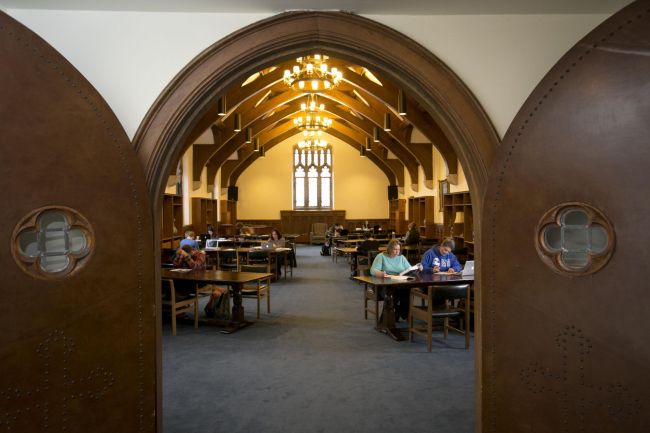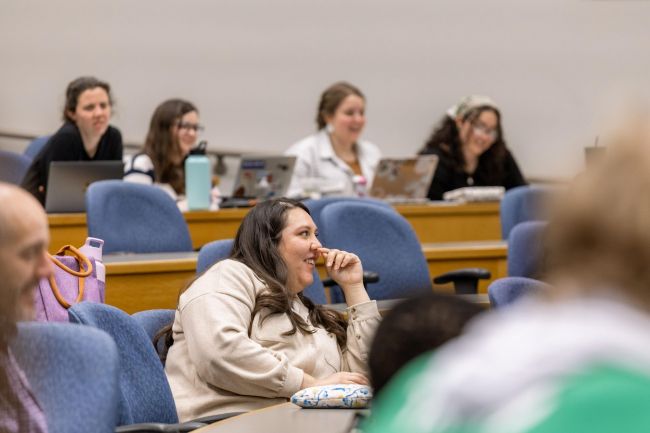The CFR’s programs equip Duke Divinity School students with the tools and resources to practice Christian reconciliation in their future ministries. The programs also provide opportunities for students to substantively contribute to the center’s mission and vision through employment, courses, and mentorship opportunities.

CFR Fellows and Friends
The CFR aspires to cultivate theology and practices to help Duke Divinity School continue to grow as a leading community that equips Christian leaders to be effective ministers for transformation and reconciliation. One opportunity for regular embodied practice is through the weekly gathering of the CFR Fellows and Friends. In this gathering, CFR staff hold space for prayer and reflection as an active practice of lament and hope within the ecumenical body of Christ in uncertain times.
Academic Courses
Duke Divinity School is one of the country’s best centers for theological learning, with a historical commitment to reconciliation. In addition to the courses taught by the Center for Reconciliation faculty, many professors focus their core classes and advanced seminars in topics of reconciliation.


The Berean Cohort
The Center for Reconciliation offers a reconciliation-centered spiritual formation group for residential students at Duke Divinity School. The Berean Cohort aims to form students into transformative Christian leaders who are deeply prepared for the mission of reconciliation in the church, academy, and world by connecting to and building on Duke Divinity School’s programs of teaching and learning.
CFR Conversation Series
Center for Reconciliation hosts a series of conversations meant to introduce individuals and organizations working on particular aspects of justice, transformation, and reconciliation. The goal of this series is to help the Duke Divinity School community develop theological language, moral imagination, and practical resources for dealing effectively with tough issues facing our churches and our world.






